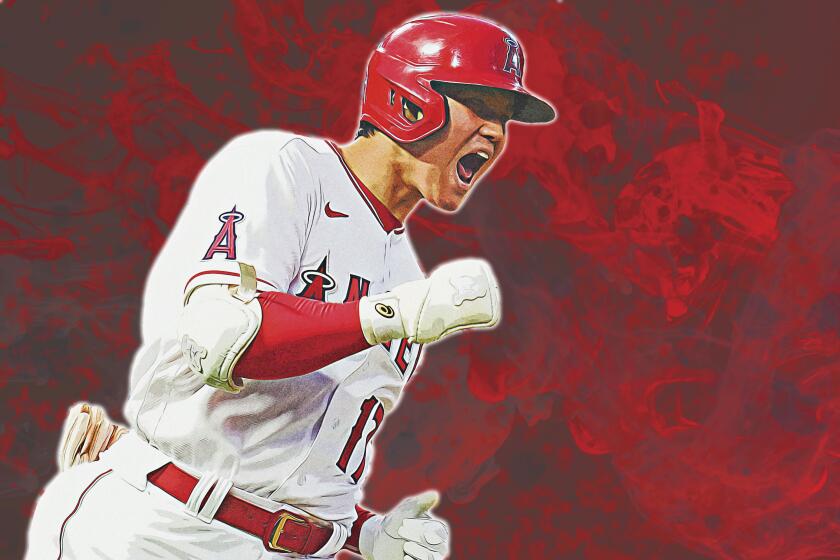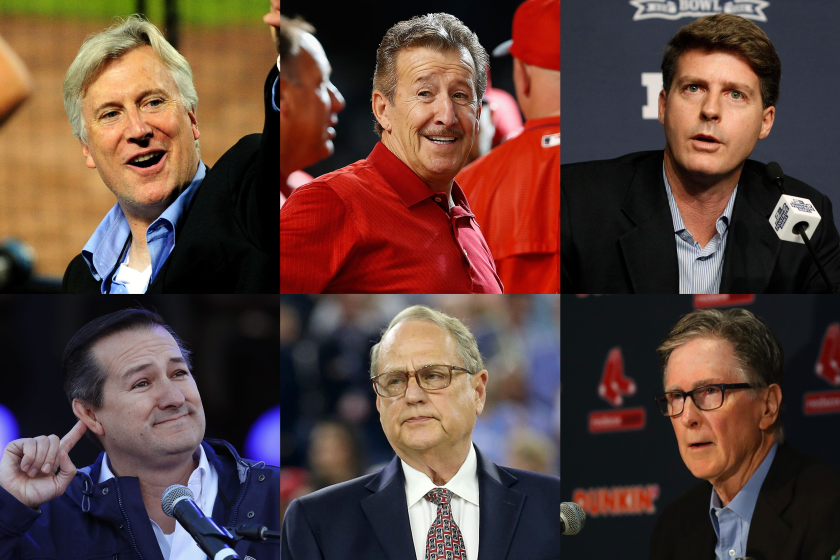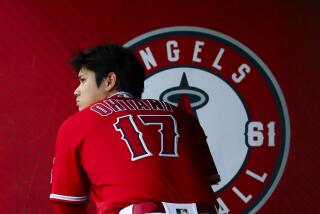Column: Will the Angels prove to Shohei Ohtani that they’re fully invested in winning?
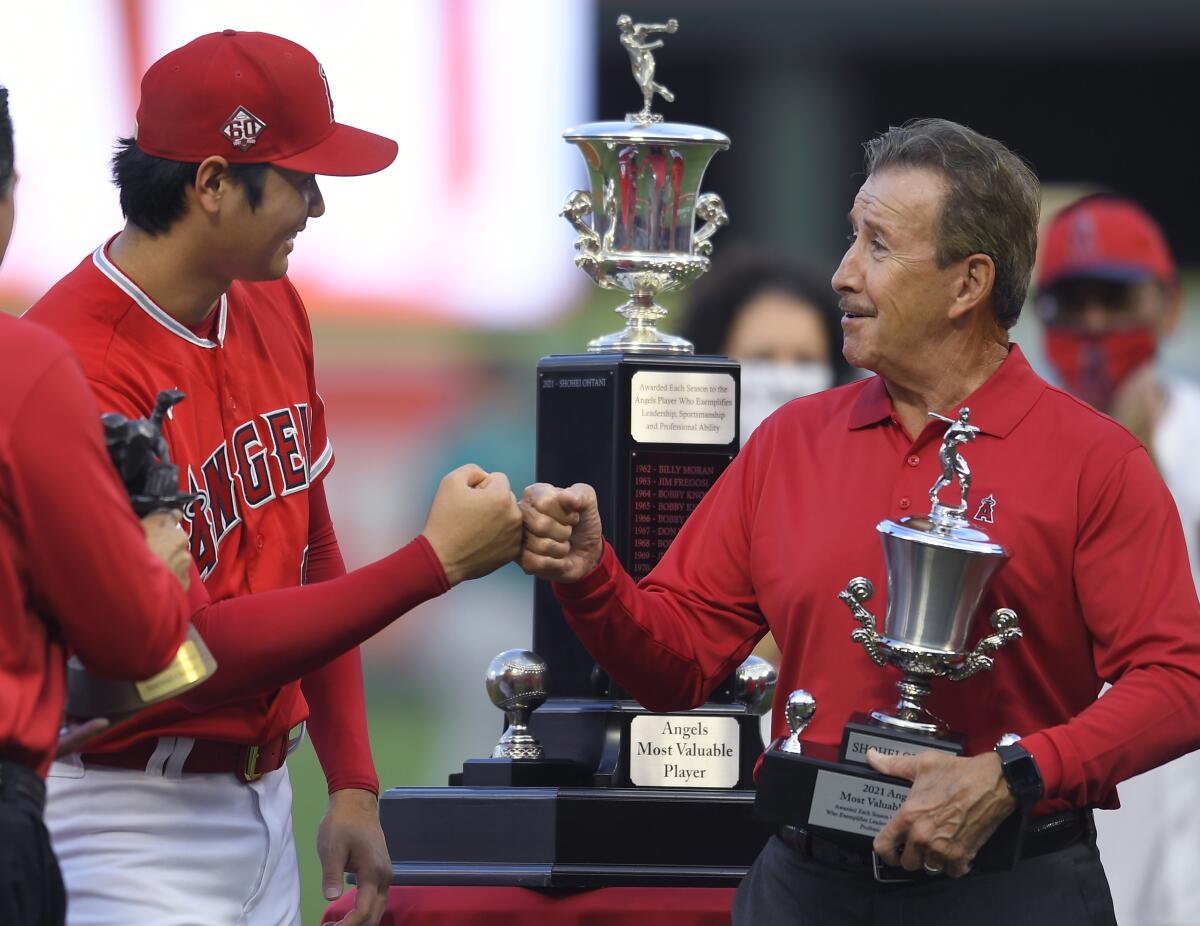
- Share via
The Angels can’t have another year like any of the previous seven, not with a major crossroads approaching.
Shohei Ohtani will be eligible for free agency after two more seasons.
Ohtani is as close to reaching the open market as Mike Trout was when the Angels locked him up to a six-year, $144.5-million deal in 2014 and a 12-year, $426.5-million extension in 2019.
Complicating the effort to sign baseball’s greatest attraction to a long-term contract is that his value went up, or perhaps even skyrocketed, over the last month.
Shohei Ohtani and many in the Angels organization believe the two-way sensation can improve on his historic 2021 season.
Ohtani didn’t launch any balls out of a stadium to increase his worth. He didn’t pitch a complete game. He didn’t have to.
Major League Baseball implemented a universal designated hitter.
The Angels will benefit, as Ohtani can be in their lineup for every game.
The same rule change, however, also could lead to his departure after the 2023 season. Ohtani’s prospective free-agent market virtually doubled in size overnight. With the DH in place in both leagues, Ohtani wouldn’t have to play the outfield if he signs with a National League team.
This could be the opposite of a blessing in disguise.
Locking up Ohtani at this stage would require the Angels to place a significant wager on his durability. Last season was Ohtani’s first in which his health permitted him to be a two-way player for the entire year. His medical history could limit how much the Angels are willing to commit to him.
At the same time, what if Ohtani’s predictions are right? What if he performs better than he did last year in winning AL most valuable player? What might he be worth then? Five-hundred million dollars? Six-hundred million? More?
The financial calculus is only part of the equation.
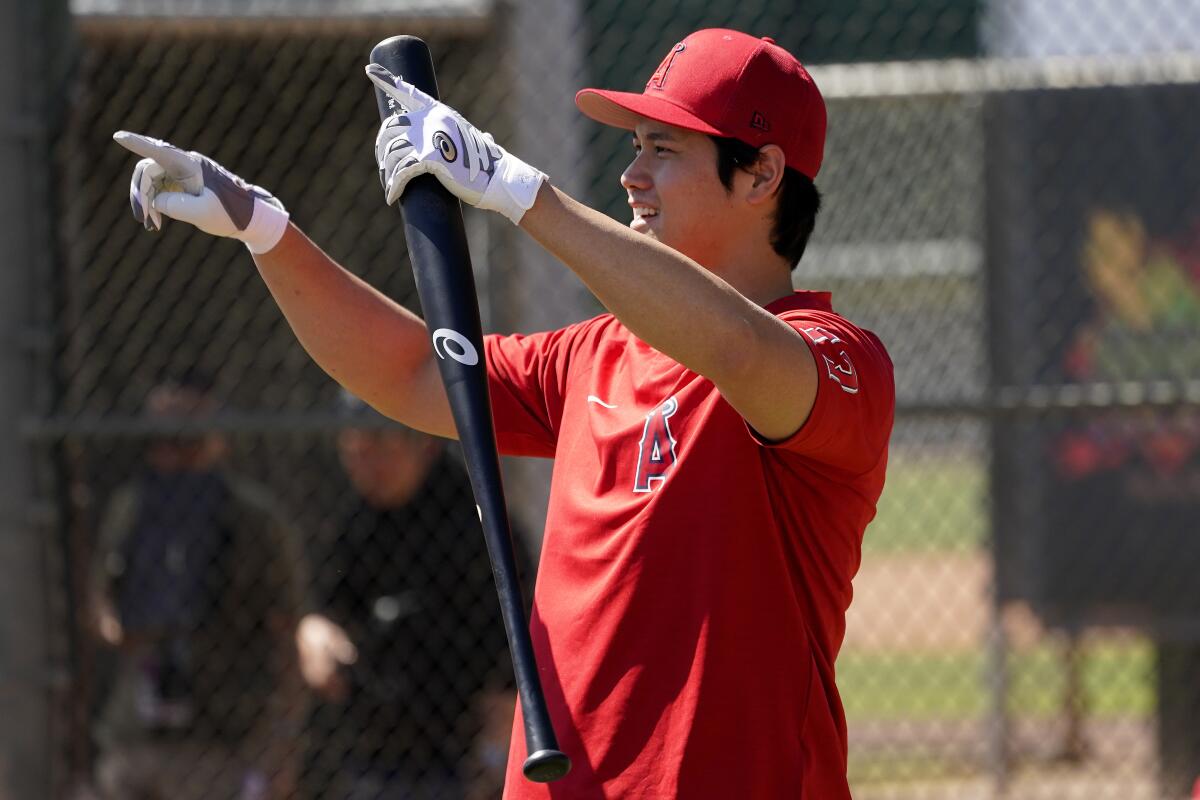
Likely more important is whether the Angels can convince him he can win a World Series with them.
The Angels have a capable front office, led by well-regarded executives in general manager Perry Minasian and assistant general manager Alex Tamin.
But they also have Arte Moreno as their owner.
The problem isn’t that Moreno doesn’t spend. The Angels’ payroll was in the top 10 in baseball last year. The team figures to spend even more this year, with the figure used for luxury-tax purposes projected to be more than $200 million.
The problem is that Moreno interjects himself in major roster decisions and doesn’t provide his front office with the resources to outspend his mistakes. Over the years he has pushed for, or at least signed off on, major investments in Albert Pujols, Vernon Wells, Josh Hamilton and Justin Upton.
A team-by-team look at the billionaire MLB team owners who are behind the lockout that could delay the start of the 2022 season.
The result is a consistent shortage of pitching that has set the organization back over the better part of the last decade and wasted historic seasons by Trout. The last time the Angels reached the postseason was in 2014.
“You can’t get to the dance, you can’t get to the last game and win it, unless you have pitching,” manager Joe Maddon said. “The teams that are in the playoffs and eventually win, their pitching staffs are always at the top of the list in all the relevant categories.”
Last season, in Minasian’s first year as general manager, the Angels bought mediocre arms in bulk to try to balance a roster that was disproportionately invested in offense. After finishing 18 games out of first place, Minasian has taken a different approach.
The Angels have purchased a number of lottery tickets in recent years, but none as expensive as hard-throwing right-hander Noah Syndergaard, whom they signed to a one-year, $21-million contract. Elbow problems limited Syndergaard to two starts over the last two years, but the Angels are hopeful he can recapture the form that made him one of baseball’s most intimidating pitchers.
Minasian also upgraded the bullpen, re-signing closer Raisel Iglesias and acquiring Aaron Loup, Ryan Tepera and Archie Bradley.
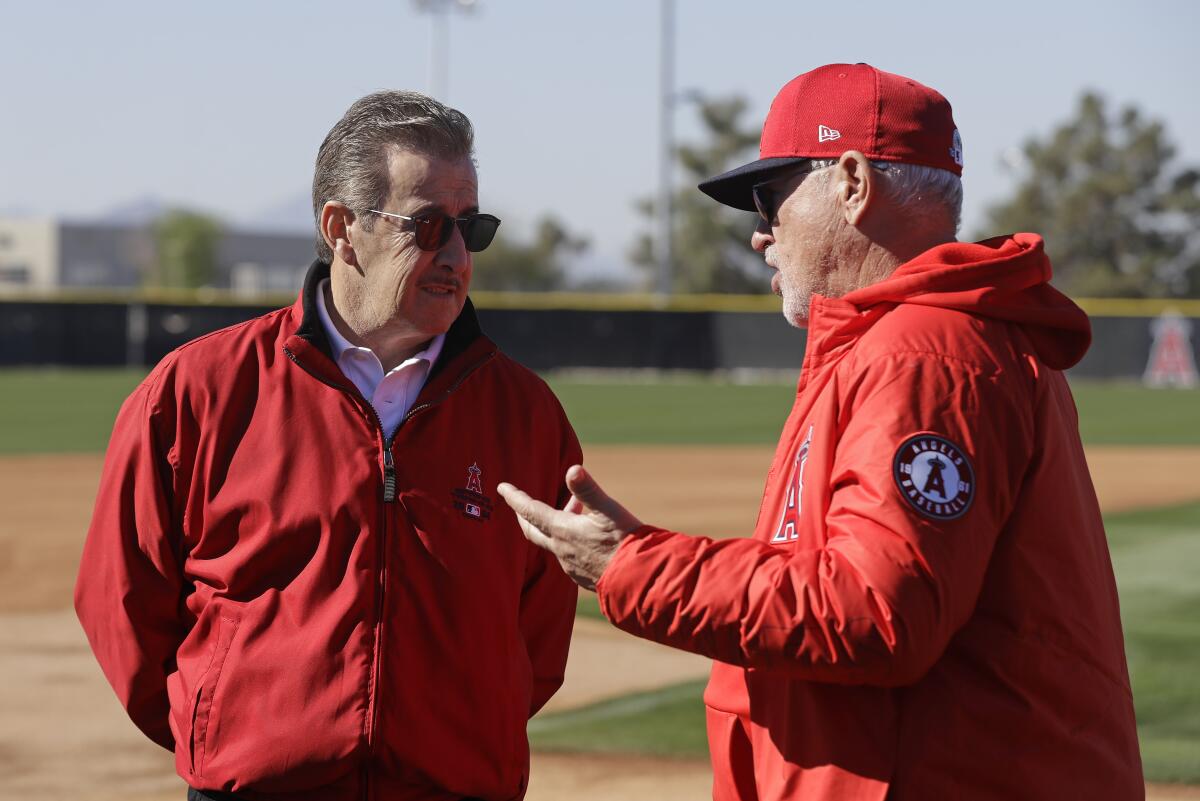
Tepera said he was familiar with how the Angels’ pitching staff was considered a liability.
“As a league, I think everybody saw that,” Tepera said. “This lineup has always been really good. I guess you could say that’s the perception.”
Of course, none of this will matter if the lineup can’t stay healthy. Trout was limited to 36 games last season and fellow slugger Anthony Rendon 58. Ohtani, Trout and Rendon combined to make up about a third of the team’s payroll but were in the lineup together only 17 times.
“The more you can keep your elite players on the field, the better off you are,” Minasian said. “Having those three players — including Noah, those four — are very important.”
How the season unfolds could determine whether the Angels can secure the services of the sport’s only transcendent player for the foreseeable future. More than a season is at stake.
More to Read
Go beyond the scoreboard
Get the latest on L.A.'s teams in the daily Sports Report newsletter.
You may occasionally receive promotional content from the Los Angeles Times.

